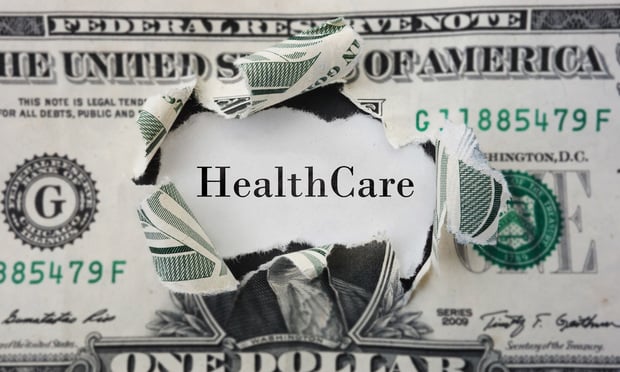Cigna Corp. and the Blue Cross and Blue Shield Association say thefederal government should put new behavioral healthparity compliance rules through a formal review period, notpackage them as an informal batch of advice.
|The Employee Benefits Security Administration, the InternalRevenue Service and the U.S. Department of Health and HumanServices have tried to put new parity compliance guidelines in aset of answers to frequently asked questions about implementationof the Affordable Care Act.
|Technically, the answer is just an informal batch of advice, nota regulation. The Obama administration "tri agencies" said in theiranswer, in October, that they want health insurers and health plansto explain their reasoning when they refuse to cover mental healthor addiction treatment services.
|The Mental Health Parity and Addiction Equity Act of 2008 andfederal regulations based on the Affordable Care Act require plansto cover physical health and behavioral health services using thesame "quantitative limits," such as deductibles and office visitfrequency limits.
|Plans are also supposed to offer parity when it comes to"nonquantitative treatment limits," or matters such as prescriptiondrug formulary design and standards for letting providersparticipate in a plan's network.
|Officials also have said that plans should disclose allformulas, standards for evidence, and other instruments used tomake behavioral health coverage decisions. They suggested theycould develop one, or several, model notices to help plans shareinformation about behavioral health benefits decision processeswith the patients.
|Officials did ask for comments on their advice.
|But David Schwartz, an executive at Cigna's federal affairsunit, and Slackman, a regulatory policy specialist in theWashington office of the Blue Cross and Blue Shield Association,write in their comment letters that the tri agenciesshould handle the matter through the formal rulemaking andpaperwork creation processes, not rush any new form or forms out ininformal guidance.
||Confusion warning
Slackman warns against the government creating forms that give afew examples of bad coverage decisions, rather than a completelist.
|If the government creates an incomplete form, that could driveup costs by creating "a proliferation of additional disclosures,which in turn would lead to confusion (and higher administrativecosts) as to what disclosure is being requested and what must besupplied in response," he says.
|Schwartz says Cigna likes the idea of creating a simple,consumer-friendly disclosure form, but giving plans a choice ofwhether to use the form or not.
|"We strongly recommend that the content of the form go throughthe regulatory notice and comment period process to allow forsufficient public input and to ensure that the model form does notcreate any new disclosure requirements or conflict with or confuseexisting disclosure requirements," Schwartz writes.
|Cigna is based in Bloomfield, Connecticut.
|Carmella Bocchino of Washington-based America's Health InsurancePlans suggested that regulators should develop any model disclosureforms at the same time they implement the mental health provisionsin the new 21st Century Cures Act.
|Brian Marcotte, president of the Washington-based NationalBusiness Group on Health writes in his comment that complying withthe parity rules is difficult, and that the evidence for somemental health and addiction treatment benefits is weaker than theevidence for many medical benefits.
|"For example," Marcotte writes, "it is difficult to obtain datafrom many substance use disorder treatment programs regarding shortor long-term outcomes for pateints, which evaluation of theprograms' effectiveness difficult."
Complete your profile to continue reading and get FREE access to BenefitsPRO, part of your ALM digital membership.
Your access to unlimited BenefitsPRO content isn’t changing.
Once you are an ALM digital member, you’ll receive:
- Critical BenefitsPRO information including cutting edge post-reform success strategies, access to educational webcasts and videos, resources from industry leaders, and informative Newsletters.
- Exclusive discounts on ALM, BenefitsPRO magazine and BenefitsPRO.com events
- Access to other award-winning ALM websites including ThinkAdvisor.com and Law.com
Already have an account? Sign In
© 2024 ALM Global, LLC, All Rights Reserved. Request academic re-use from www.copyright.com. All other uses, submit a request to [email protected]. For more information visit Asset & Logo Licensing.








